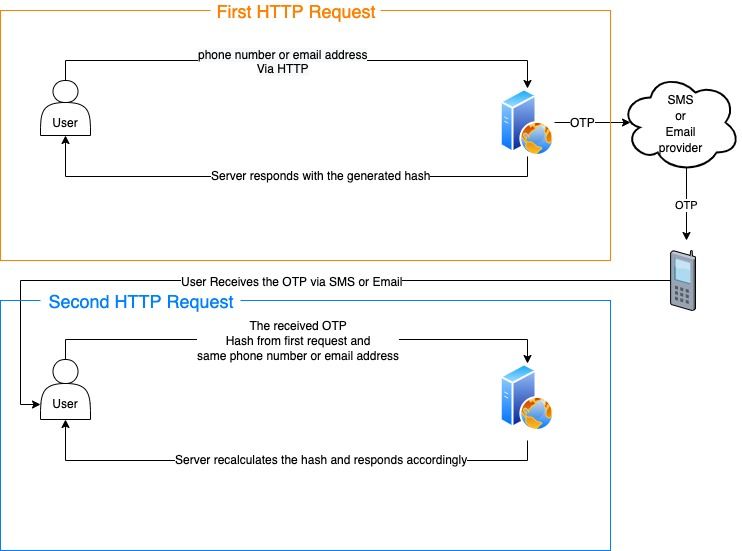
Security News
Node.js Moves Toward Stable TypeScript Support with Amaro 1.0
Amaro 1.0 lays the groundwork for stable TypeScript support in Node.js, bringing official .ts loading closer to reality.
otp-without-db
Advanced tools
This module is derived from my blog post on the technique. You can read the blog post here to understand the technique and motivation.
This module depends on the Crypto built in module on nodeJS. This is the only dependency and should work in any system that has crypto support (Which is technocally majority of the systems at this moment)
This module also uses some modern JavaScript features like Template literals, Default arguments and modern object literal. This might be a problem if you are planning to use it with older versions of nodeJS
You can use npm to install the package with the following code
npm install --save otp-without-db
You need additional tool to create OTP, and send SMS. This module only takes care of the verification part.
You can take a look at the otp-generator module to create OTP for your users.
OTP verification is done in the following steps:
A hash is created with the phone number/email address and then sent to the user.
The user also receives the OTP via SMS, email or any other method.
The user sends back the hash, OTP and phone/email used in the first request.
The server verifies the information and returns true if they match.
Here's a diagram that shows the whole process:

We will use the otp-generator tool mentioned previously to create OTP. You can use any other tool or technique.
const otpGen = require("otp-generator");
const otpTool = require("otp-without-db");
const key = "secretKey"; // Use unique key and keep it secret
let phone = "88017009090";
let otp = otpGen.generate(6, { upperCase: false, specialChars: false, alphabets: false });
let hash = otpTool.createNewOTP(phone,otp,key);
You can then send this hash to the user as response. The generate method takes these following arguments (In particular order),
createNewOTP(phoneOrEmail,otp,key="",expiresAfter=5,algorithm="sha256")
| Argument | Required | default | Description |
|---|---|---|---|
| phoneOrEmail | true | N/A | Phone or email |
| otp | true | N/A | OTP |
| key | false | "" | unique and secret key for HMAC see: createHmac |
| expiresAfter | false | 5 | Expirty in minutes |
| algorithm | false | sha256 | Algorithm used for hashing the data. Any supported algorithm from OpenSSL |
The user should get the hash from the HTTP request and should get the real OTP via SMS or email.
Then when the user sends back the information, they can be verified with the following code:
otpTool.verifyOTP(phone,otp,hash,key);
This method returns a Boolean. If the verification is successful, it will return true.
This method also takes the following arguments in particular order:
verifyOTP(phone,otp,hash,key="",algorithm="sha256")
| Argument | Required | default | Description |
|---|---|---|---|
| phoneOrEmail | true | N/A | Phone or email |
| otp | true | N/A | OTP |
| hash | true | N/A | The hash that was returned from the user |
| key | false | "" | unique and secret key for HMAC see: createHmac |
| algorithm | false | sha256 | Algorithm used for hashing the data. Any supported algorithm from OpenSSL |
This product is created with 🖤 by Anam Ahmed, Any improvements and PR is welcome.
FAQs
Database less OTP verification with cryptography
The npm package otp-without-db receives a total of 70 weekly downloads. As such, otp-without-db popularity was classified as not popular.
We found that otp-without-db demonstrated a not healthy version release cadence and project activity because the last version was released a year ago. It has 1 open source maintainer collaborating on the project.
Did you know?

Socket for GitHub automatically highlights issues in each pull request and monitors the health of all your open source dependencies. Discover the contents of your packages and block harmful activity before you install or update your dependencies.

Security News
Amaro 1.0 lays the groundwork for stable TypeScript support in Node.js, bringing official .ts loading closer to reality.

Research
A deceptive PyPI package posing as an Instagram growth tool collects user credentials and sends them to third-party bot services.

Product
Socket now supports pylock.toml, enabling secure, reproducible Python builds with advanced scanning and full alignment with PEP 751's new standard.